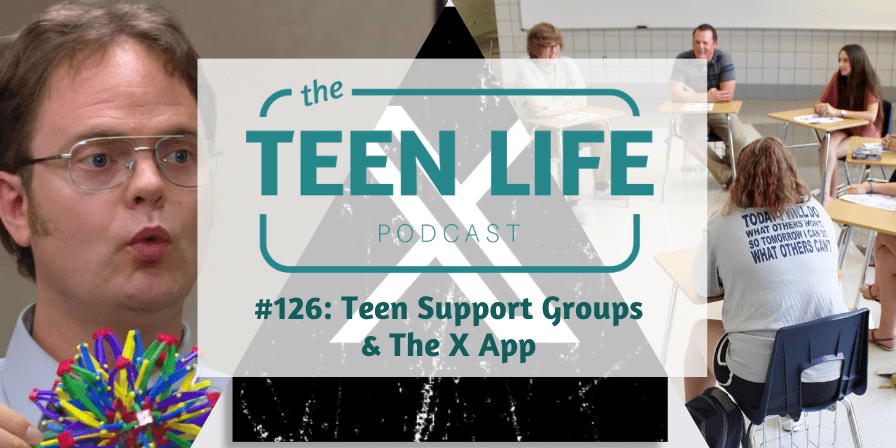Every teen should participate in a Support Group. Here’s why.
But what exactly are these Support Groups, and why should we encourage our teens to join them?
What’s the big deal about Teen Life Support Groups?
Combatting the Stigma of Therapy
Despite growing awareness around mental health, there remains a stigma associated with therapy. Many teens and parents hesitate to seek therapeutic help due to fears of judgment or labeling. Support groups, on the other hand, are perceived differently. They are seen as peer-driven and less formal, making it easier for teens to participate without feeling stigmatized.
After an 8-week Support Group, she knew that her friends needed what she had found. She was so determined to get the same help for her friends that she pursued an adult who she thought would make a great facilitator.
It turned out she was right. Several of her friends were struggling with suicidal thoughts, and because they were placed in a Support Group, the school staff and the facilitator were able to intervene in a positive, life-changing way.
Convenient Scheduling During School Hours
One of the significant advantages of Support Groups is their timing. These sessions usually occur during school hours, fitting seamlessly into a student’s day. This convenience means teens are more likely to attend and benefit from these sessions without additional travel or time commitments after school, making participation hassle-free and more appealing. For many of the teens we see, this is a deciding factor in getting help that could change or even save their lives.
The Center for Disease Control (CDC) agrees.
Recently, they released a guide for promoting mental health and well-being in schools. In it, they outline ways that schools can create systems for early prevention and detection of mental health concerns and ways to teach students the social skills they need to thrive. It can seem overwhelming for teachers and counselors to tackle something like that alone, but Teen Life offers a ready structure and curriculum that meets many, if not all, of the listed practices.

Solution-Focused Curriculum
Our curriculum is rooted in solution-focused therapy principles. This approach empowers teens by helping them identify harmful patterns and understand their consequences. More importantly, it equips them with practical steps to forge a better path forward. Through guided discussions and activities, teens learn to set goals, develop coping strategies, and build resilience, all within a supportive peer environment.

Benefits for Teachers and Counselors
Educators can share the burden of meeting their students’ needs.
The reality is that there are too many teens in need of help for teachers and counselors to support them all adequately. According to NAMI, one in six kids aged 6-17 experience a mental health disorder each year, but only 50% receive help. School staff are often stretched thin, trying to provide individual attention amidst their numerous responsibilities. Support groups can bridge this gap, offering a collective support system where teens can receive the help they need.
A collaborative support system benefits everyone.
When teens participate in support groups, they bring back improved coping mechanisms and a better understanding of their behaviors into the classroom. This positive change can make classroom management easier and enhance the overall learning environment. What’s more, support groups build community among students, reducing bullying and social isolation overall, but also improving students’ resilience when they are provoked. We’ve heard from many teachers and counselors who say they love Groups because they see fewer negative behaviors to manage during and after students have participated.
Encourage Participation
- Promote Awareness
Educate teens and parents about the nature and benefits of support groups. Sharing the concepts covered in the curriculum and clarifying that these are not therapy sessions can help reduce resistance. Support groups truly are for ALL types of students! - Facilitate Access
Work with schools to integrate support group sessions into the regular school schedule. Make sure the times are convenient for students, even if that means missing class. Trust us, the overall benefits far outweigh the costs. - Engage and Support
Encourage open communication about the experiences and benefits of support groups. Celebrate the successes and progress of participants to motivate others to join. In our experience, students become the greatest advocates of support groups once they experience one for themselves!
Together, we can create a healthier, more supportive environment for all our students.
Contact us for more details on our online training or bringing Support Groups to your school.

Kelly Fann
Digital Media Manager
Kelly Fann | Digital Media Manager
Kelly has a desire to empower young people to grow into the best version of themselves. Using her background in branding and word-smithing, she is a master at highlighting resources that help teens learn skills that will enable them to grow and to adapt, to enjoy life and to be better citizens. Kelly has a MA in Linguistics from North Texas University.



